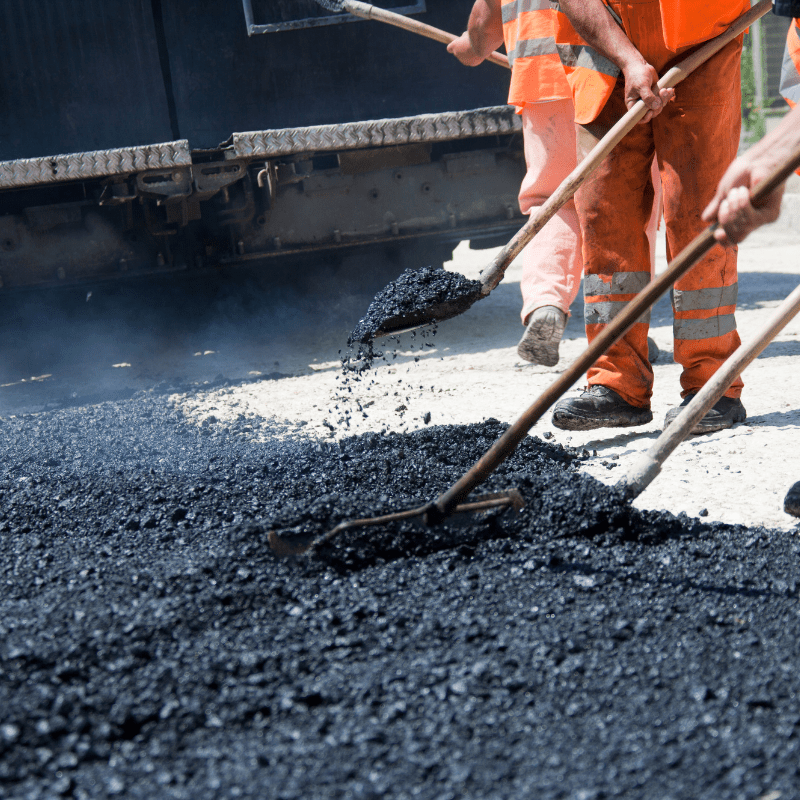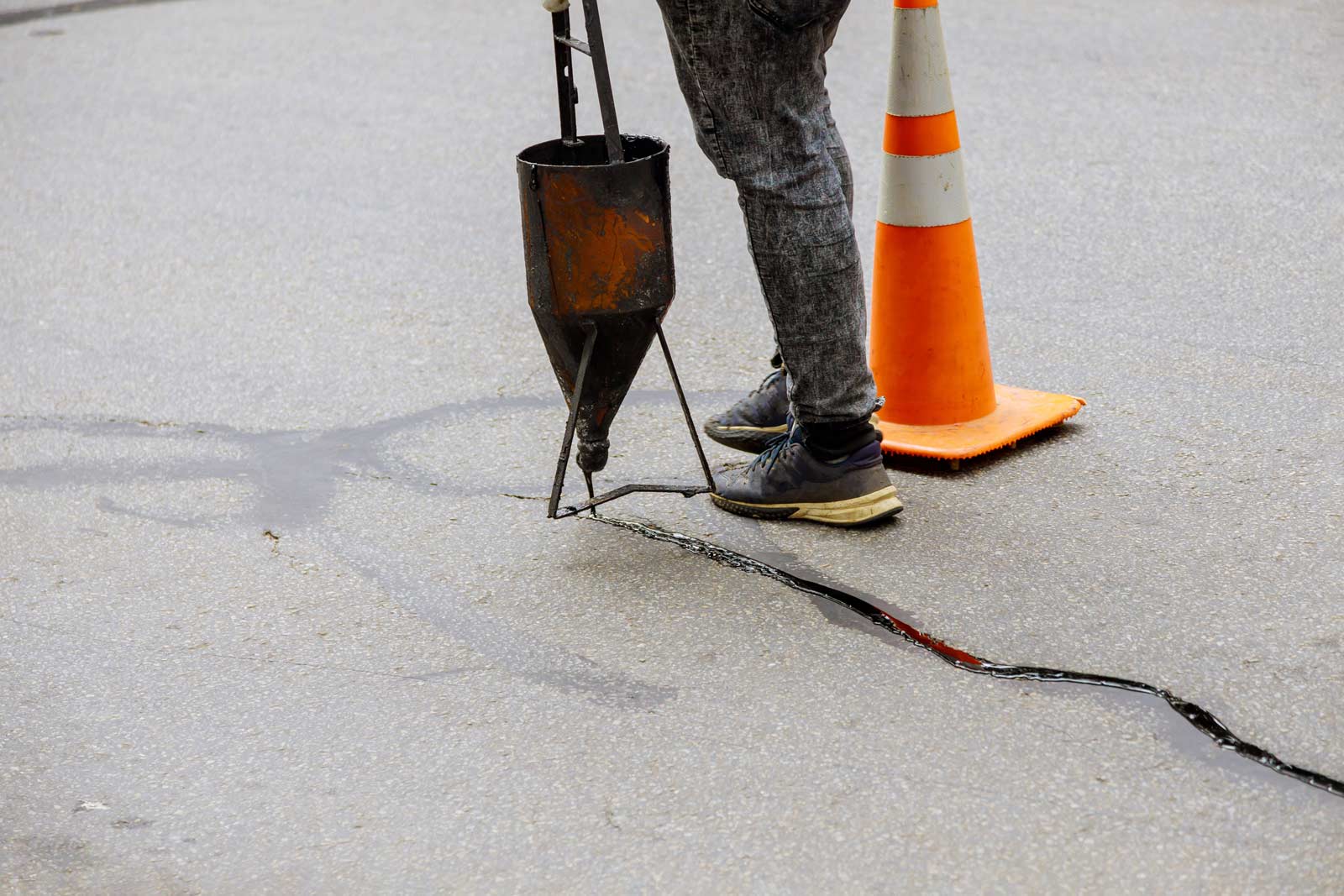Yes, You Can!
Winter’s chilly embrace often brings to mind cozy fires and warm beverages, not necessarily road or driveway repairs. However, the colder months need not spell a hiatus for all asphalt maintenance tasks. Contrary to some beliefs, infrared repairs and asphalt crack sealing can not only be conducted during winter but can also offer some unique advantages. Let’s explore these procedures and their winter viability.
Infrared Repairs:
Infrared repairs have steadily gained popularity as an efficient method to mend potholes, uneven surfaces, and other asphalt inconsistencies. By leveraging infrared technology, this technique heats the damaged asphalt area, softening it and making it malleable.
Winter and Infrared Repairs:

- Harnessing Heat: Infrared, by definition, emits heat, making it intrinsically suitable for colder temperatures. While winter’s cold can be fierce, the heat from infrared technology effectively counters it, ensuring that the asphalt softens adequately for repairs.
- Tailored Techniques: Expert asphalt maintenance companies have honed their skills to adapt to varying conditions. In winter, they might tweak their methods slightly, like prolonging the heating duration, ensuring that the process remains efficient despite the cold.
- Seamless Finish: One of the hallmarks of infrared repairs is the seamless finish, ensuring that the repaired area doesn’t stand out. This aspect remains consistent, irrespective of the season.
Asphalt Crack Sealing:
Asphalt crack sealing plays a pivotal role in extending the life of pavements. It involves filling and sealing cracks with a special sealant, preventing water from seeping in and causing more damage.
Benefits of Asphalt Crack Sealing in Winter:

- Modern Sealants: Sealant technology has come a long way. Today’s products are crafted to perform well in various conditions. Cold-resistant sealants ensure that even in low temperatures, the application remains smooth and the adhesion strong.
- Natural Assistance: Cold weather causes asphalt to contract. This natural phenomenon can actually be advantageous for crack sealing, as it results in wider cracks. The sealant can then penetrate deeper, providing a more robust and long-lasting seal.
- Preventive Approach: Addressing cracks in the winter is a proactive approach. It ensures that water and ice do not further widen the cracks, causing more extensive damage when spring arrives.
Why Consider Winter Repairs?
Winter repairs offer several distinct advantages:
- Immediate Action: Postponing repairs can lead to escalating problems. By tackling issues in winter, you prevent them from worsening, saving time and potentially significant repair costs in the future.
- Safety Prioritized: Potholes and cracks can pose safety risks. Immediate repairs ensure that roads and pathways remain safe for pedestrians and vehicles, reducing accident risks.
- Experienced Professionals: The key to successful winter repairs lies in expertise. An experienced asphalt maintenance company will be well-equipped to navigate winter’s challenges, ensuring that the quality of repairs is uncompromised.
Conclusion
The question isn’t so much whether infrared repairs and asphalt crack sealing can be done in winter, but rather how they can be optimized for the season. With advancements in equipment, innovative materials, and the expertise of Coatings Inc., winter becomes a feasible and sometimes preferable time for asphalt maintenance. If you have asphalt issues needing attention, don’t wait for the snow to melt. Seek advice from Coatings Inc. and get ahead of potential problems, ensuring durability and safety across all seasons.
